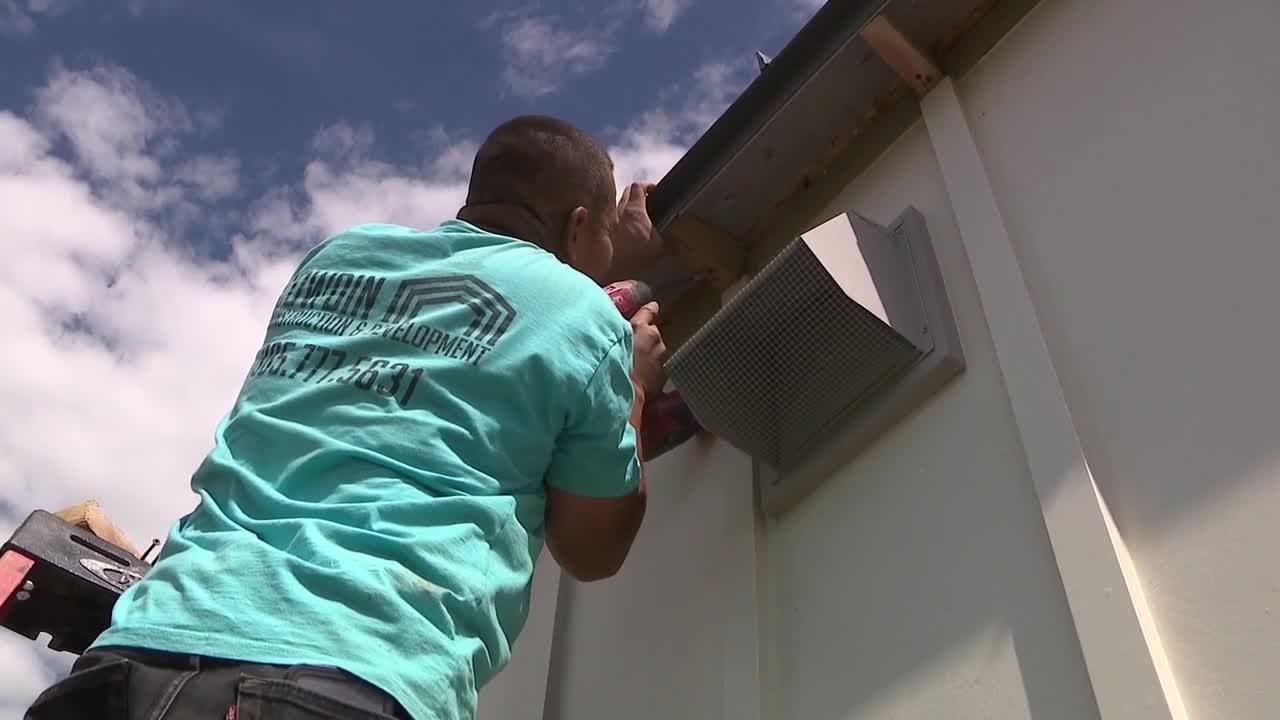SALT LAKE CITY — A walk over a small bridge in Salt Lake City takes residents to the other side at the Other Side Village, a program that seeks to solve chronic homelessness, offering individual homes to those who qualify and commit to making a change in their lives.
"Many of our residents have been on the streets 9, 10, 20 years or more, and now they’re in their own home. They feel safe and they’re thriving," said CEO Preston Chochrane.
Fourteen residents currently live in the community located at 1882 West Indiana Avenue, with four more moving in next week, all in individual residences with furnishings by Overstock.
"It's the whole community coming together and building it together," explained Cochrane.
The 56 one-bedroom homes come with a full kitchen and bath, and are private and safe.
"It's not just an automatic, 'Here’s your keys, move in,'" Cochrane shared. "We have a whole 6-12-month process that we put them through to prepare them for village life."
Homelessness in Utah shows sharp rise, including increase in children:
Residents are required to be clean and sober, attend regular meetings, and be employed, usually in one of the non-profit’s programs.
"It’s all about accountability. It’s about behavior. It’s about change. And it’s about purpose," said Cochrane.
The Other Side Village uses the therapeutic community model, where they work on the whole person, not just the home. The first residents moved in at the start of this year.
On Monday, professional crews were putting on a few final touches on the homes, many of which were built by students.
"We work with schools all over the valley who have built homes in their construction education programs; 30 homes that are built by schools," said Other Side vice president Camille Winnie.
It's a different approach for a non-profit, not relying on federal funding but local partnerships, private sponsors and their social enterprise businesses.
"We operate the Other Side Donuts, the Other Side Foods and soon to be the Other Side Inn," said Cochrane.
Also set to open next month are a medical clinic, a community center and dozens more tiny homes, on land leased from the city for a dollar a year.
While the program has received city and county funding to start, it hopes to be completely self-sufficient, offering new beginnings to all those who commit to changing their lives.
"We’ve always been looking at ways to do it better, to actually solve the problem at its root, and that’s what we feel like we’re doing here," said Winnie. "Helping people become successful so they can keep their home permanently."




